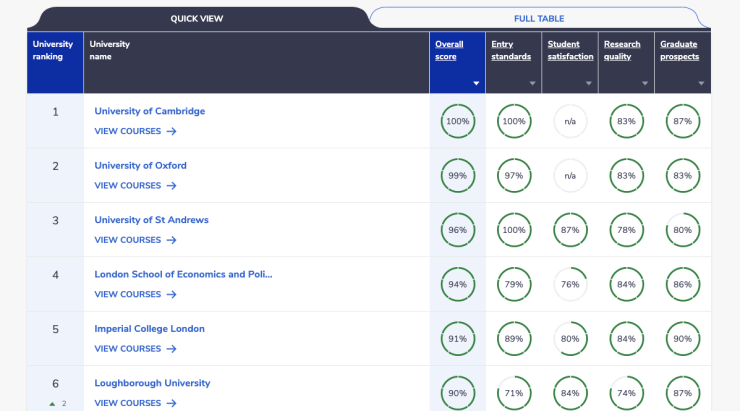Well this is awkward. Last post we were talking about how university rankings could become a source of toxicity. However, at the end of the day those rankings are just numbers and if put to good use can be useful in choosing a university. University rankings should be used with caution and taken with a grain of salt as they are just surface level indicators of what a uni can offer you.
Where to Find Them
University rankings are all over the internet and give different rankings depending on their respective criteria. It’s important to note what aspects of a uni they evaluate and how they evaluate to actually be able to understand the meaning of the rankings givens. Notable university rankings include QS, Complete University Guide, Times Higher Education, Study-in UK and The Guardian.

How to Use Them
University rankings should be used as an indicator of what unis you should be looking at. This is because they don’t tell the full story of what your uni experience should be because in most cases uni rankings are too general. As a general indicator, uni rankings will be able to tell you a few things.
First, whether if a uni is good or not. This is quite a no brainer but uni rankings are good at mapping out extremities. They are usually a good judge of a prospective uni experience if they are at the very top of the table or on the very bottom.
Second, uni rankings are useful in singling out unis that you might be interested in. Say you have a course that you would like to take in mind but you do not think of going straight to the course rankings or you don’t care. Checking out the uni rankings before hand is a decent move and even if the course at the uni you choose isn’t as good as others you will still be able to benefit from getting into a high-ranked uni.
Third, they are usually a good judge of a unis research quality. Rankings such as QS usually hold research to a high standard and rankings usually do a decent job at judging a unis research quality. If for some reason you as an undergraduate are interested in the research aspect of a uni, university rankings are a good reference to go by.
Contact Access Education at:
Email: info@konsultanpendidikan.com




